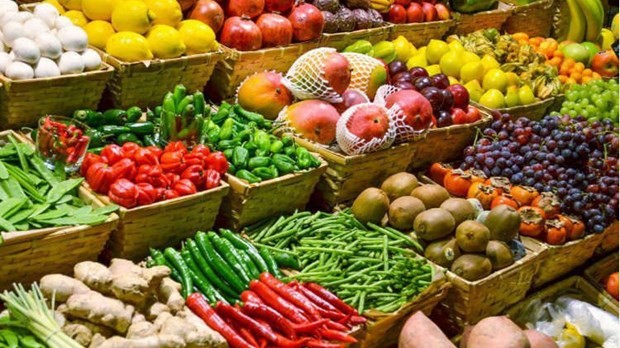- Giới thiệu
- Nhóm Công tác
- Tin tức
- Thông tin về FTA
- Tài Liệu
- Sự kiện
- Liên hệ
Vietnam develops green agriculture to increase exports to EU
Vietnam is paying attention to mobilising resources to invest in developing green agriculture with an aim to raising the market share of its agricultural exports to the European Union

Last year, Vietnam’s export revenue of agro-fishery-forestry products set a record high of 53.22 billion USD, up 9.3% year-on-year. However, Europe accounted for only 11.3% of its market share.
This is a modest number, although the agricultural sector has optimised many advantages of the EU-Vietnam Free Trade Agreement (EVFTA).
One of the main reasons is said to be the union’s high requirements on farm imports, while Vietnam’s agricultural production has yet to meet green growth requirements.
According to the World Bank’s report, agriculture is the second highest emitter, accounting for 19% of the nation’s total gas emissions in 2020. About 48% of the sector’s emissions and more than 75% of methane emissions are from rice production.
Therefore, to boost farm exports to the EU, the sector is advised to pay more attention to green growth indicators through making policies and roadmaps to reduce greenhouse gas and methane emissions in accordance with international commitments.
Last year, the Ministry of Agriculture and Rural Development approved an action plan to implement the National Strategy on Green Growth from 2021-2030, which aims to specify goals, tasks and solutions to realise the strategy and the national action plan for green growth.
Under the plan, the ministry will work to develop the agricultural sector in an ecological, organic, circular and low-carbon direction to improve growth quality, added value, competitiveness and sustainable development, while reducing pollution in agricultural production and rural areas, and promoting energy efficiency towards carbon neutralisation by 2050. Specifically, the sector aims for 2.5-3% in annual growth, and 42% in forest coverage.
It will also strive to increase the use of organic fertilisers to 30% of all those consumed, along with 30% of pesticides and at least 30% of farm areas using water-saving systems.
The sector will switch 300,000 hectares of rice to other crops with higher economic and environmental efficiency, while aiming for over 2% of organic farms out of the total farming area
Tin liên quan
PSAV Attends the 30th Anniversary Celebration of Cargill Vietnam2025/10/23
Plant health management helps increase coffee yield up to 15%2025/10/16
An Giang to host 2025 OCOP forum for sustainable development2025/09/25
Viet Nam and France foster cooperation on blue economy and sustainable environment2025/09/29
Agriculture and Environment exhibition ready for National celebration2025/08/27



 Điều lệ hoạt động
Điều lệ hoạt động



















































